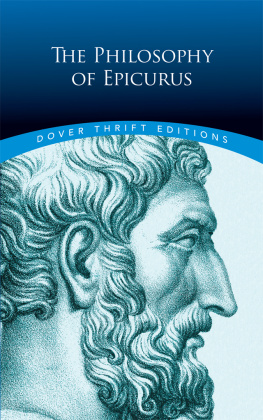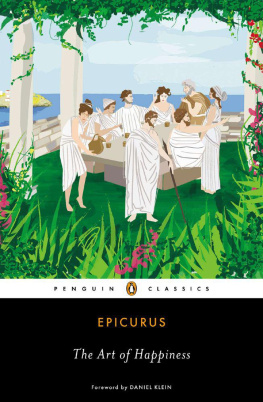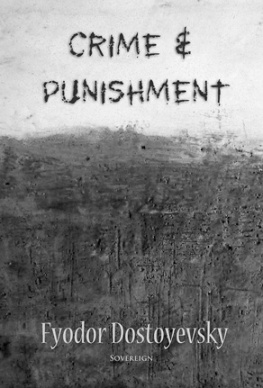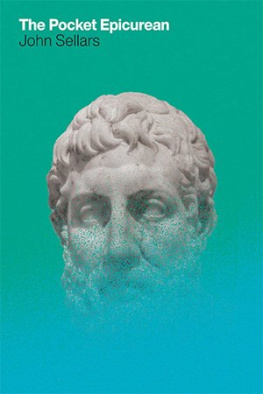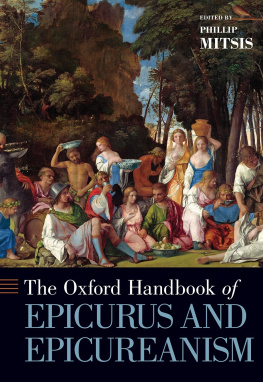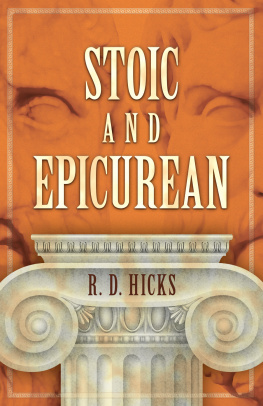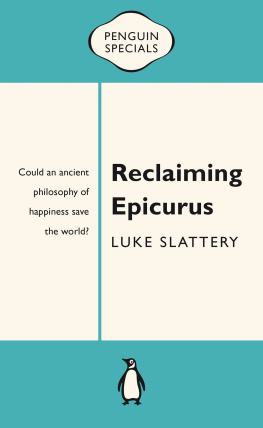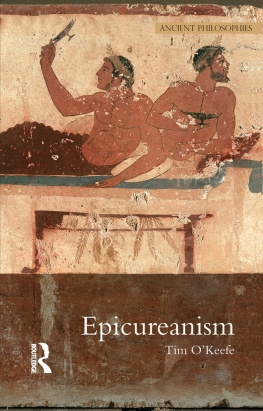THE PHILOSOPHY OF EPICURUS

DOVER THRIFT EDITIONS
GENERAL EDITOR: SUSAN L. RATTTNER
EDITOR OF THIS VOLUME: STEPHANIE CASTILLO SAMOY
Bibliographical Note
This Dover edition, first published in 2019, is an unabridged republication of the work originally printed by Northwestern University Press, Evanston, Illinois, in 1963.
International Standard Book Number
ISBN-13: 978-0486-83303-3
ISBN-10: 0486-83303-8
Manufactured in the United States by LSC Communications
83303801
www.doverpublications.com
2 4 6 8 10 9 7 5 3 1
2019
Contents
Preface
Epicurus is a neglected philosopher. No complete translation of his extant works has appeared in English since Cyril Bailey published his Oxford edition in 1926. Baileys work was intended primarily for scholars in the field of Epicurean studies and for university students with an extensive knowledge of the Greek language. The present edition is intended primarily for American undergraduates (most of whom today have little Latin and less Greek) who are taking courses in ethics, the history of ideas, or the history of science, in any one of which fields Epicurus will find his rightful place. In place of Baileys overly literal and sometimes unintelligible renderings I have substituted what I hope is a modern and readable English, which still remains quite close to the original text. In addition, the flat and pedantic style of Epicurus has been enriched by the inclusion of numerous parallel passages from the philosophical epic of Lucretius, who was Epicurus most devoted and gifted Roman follower.
The public image of Epicurus has come down to us gravely flawed. The educated layman has picked up various stereotypes to the effect that he was an epicure, an atheist, a pleasure-monger, and an ethical materialist. The introduction and commentary of this book attempt to correct these grievous and unnecessary errors by defining terms and by setting forth the leading concepts of the Epicurean school in full context. In addition to clearing the ground of misconceptions, care has been taken to show the substantial contributions of Epicurus to the Western tradition: his popularization of the atomic theory of Democritus and the implications of this theory for human happiness, his propaganda against antiscientific superstition and popular religion, his revolt against Platonic rationalism and insistence on empirical methods of verification, and his new peace of mind gospel for the troubled intelligentsia of the Hellenistic period.
It is a pleasant duty to acknowledge here with gratitude and humility the debt I owe to others in this enterprise. My greatest debt is to Bailey himself, but among the living I wish to single out Professor Norman W. DeWitt of the University of Toronto for his admirable and unorthodox study of Epicurus (1954) and, nearer to hand, my friendly critics of the Lafayette College faculty, Professors W. Edward Brown, George A. Clark, Charles C. Cole, and William W. Watt, who are specialists, respectively, in the fields of Greek, philosophy, history, and English. All of the last named have read the manuscript in part or in whole and have made numerous constructive suggestions, some of which I have eagerly adopted, others of which I have had the temerity to disregard. Professor Clark is in a real sense the books onlie begetter, for without his initial stimulus and encouragement it would never have been written. Lastly, my warm thanks go to Mrs. Wilma Benka, whose patience and skill in typing the manuscript from hand-written copy have been indispensable.
G. K. S.
Easton, Pennsylvania
June 1962
THE PHILOSOPHY OF EPICURUS
Introduction
I. DEVELOPMENT OF THE ATOMIC CONCEPT
Many of the characteristic positions which Western philosophy has developed in its long history of twenty-five centuries are already clearly represented or at least adumbrated by Greek thinkers of classical antiquity. One of the best known of these ancient schools of thought is the point of view traditionally known as materialism, the theory that all reality is reducible to matter or matter-in-motion. Ancient materialism has a number of representatives, but chief among them are the Greek philosopher Epicurus (c. 342270 B.C.) and the Roman poet-philosopher Lucretius (9455 B.C.), and it is with these two figures that this book is principally concerned.
If we are to consider materialism, we must first consider matter itself, and if we discuss matter we cannot avoid talking about the Greek conception of the atom, the irreducible unit of matter and the foundation of all realityphysical, psychological, biological, moral, social, and historical. Neither Epicurus nor Lucretius had originated the atomic theory, though they both had much to do with propagating its doctrines. When Lucretius came to versify in hexameters for Roman readers of the Ciceronian and Caesarian period, he utilized one of the longer, more popular digests of atomism (the so-called Major Epitome) composed by Epicurus two centuries earlier. And Epicurus in turn had relied heavily, especially for his physics and metaphysics, on the works of the Greek atomist Democritus, of the fifth century B.C. Between Democritus and the first beginnings of Greek thought there is an expanse of over 150 years, during which the initial crudities were enlarged upon, contradicted, compromised, and at last refined into the first statement of atomism. Let us see briefly how this came about.
A perennial question in Greek philosophy, early and late, is the metaphysical problem of the One and the Many. This may be put in the form of a question: Is it possible to penetrate the veil of the senses, which reveal the world as multiple and diversified, and to discover some underlying unity from which the many may be derived? In other words, is it possible to reconcile the multifarious world of sensory experience with ultimate reality? Or what is the nature of the real world that lies behind the ordinary everyday world? The Greeks attacked these speculative questions with zest and great ingenuity and were by no means discouraged when they found themselves unable to obtain a final, definitive answer. The earliest speculators, three members of the Ionian or so-called Milesian school, Thales, Anaximander, and Anaximenes (c. 600 B.C.), were frank materialists who postulated primary stuffs such as water or fiery air as the underlying real from which the entire world of physical objects is derived. At the same time they assumed this primary stuff to be living in itself and, if living, to be capable of all possible change. The actual mechanics of change they explained by two principles, condensation and rarefaction. Thus water, for example, is rarefied into vapor or steam or compacted into ice, rock, bone, tissue, etc.
But this first attempt to explain natural change did not pass muster with the more sophisticated thinkers who came later. So the successor of the Milesians, Heraclitus of Ephesus (c. 500 B.C.), concentrated on the problem of change, so much so that he made change itself the metaphysical real. The world has no underlying unity except flux, which is the denial of unity. Heraclitus pictured the world of things dialectically as an unstable and temporary harmony of opposing cosmic forces. On the one hand, he believed, there is a force that compounds the four Greek elementsearth, air, fire, and waterinto things; simultaneously the opposing cosmic force is at work decompounding them, so that permanence, stability, and self-identity are written off as illusions of the senses. It is impossible to step into the same river twice, Heraclitus said, but he might just as well have said, It is impossible to step into the same river once, because same is a mere linguistic convenience which falsifies the nature of things. The cosmic process is poetically symbolized as Fire (for Heraclitus, like all the early cosmologists, philosophized in poetry) and is called god, but it would be a mistake to suppose that he conceived reality as being either of these exclusively. Reality is all things simultaneously, or, in the Greek phrase, it is a process of becoming in which even apparently clearcut opposites lose identity and merge into each other. Thus, Good and evil are one and It is the same thing in us that is alive and dead, awake and asleep, young and old; the former are shifted and become the latter, and the latter in turn are shifted and become the former. Heraclitus position is well summed up in the two words

